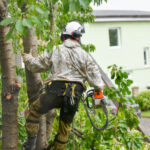Most people are familiar with the common signs of a blocked drain. They include an unpleasant aroma around sinks and plugholes, a toilet which is slow to drain and regularly backs up when flushing gurgling pipes and plugs which refuse to drain quickly.
What most people don’t know, however, is how to protect their drains and ensure that they never fall foul of a drain blockage. For this blog, we spoke to London drain cleaning specialists to identify three of the top prevention techniques to help protect your drains.
1. Invest in proper maintenance
Drain maintenance is a regular service which involves a professional company attending your property and conducting a thorough clean and flush of your pipe network and complete system. The idea of drain maintenance is to remove any scale deposits and ensure the pipework is free from blockages regularly so that build-up does not occur.
Not only does this ensure that your drains remain protected and hopefully free from a large scale build up and blockage, thus saving you from the hefty financial commitments of drain unblocking and repair work, but maintenance also ensures everything is working well. It keeps your drains free from unpleasant aromas and can be the first step in isolating any issues or damage deep within your pipe network, which may require further intervention.
2. Familiarise yourself with drainage do’s and don’ts
Another way of protecting your drains from damage and blockages is to familiarise yourself with the do’s and don’ts of flushing away certain artefacts and products. Some of the biggest build-ups are caused by hair or kitchen fat and grease which has been systematically rinsed down the drain and allowed to harden, thus causing a backup of other debris over time.
By ensuring that you don’t flush unwanted items down the toilet, and by preventing grease, hair, and other oils from being washed down your sink and drain, you can help to alleviate some of the most common causes of damaging blockages.
3. Act fast if you notice signs of a blockage
The third and final thing you can do to protect yourself from a damaged or blocked drain is to act fast when you notice any of the signs. Unfortunately, leaving a blockage does not mean that it will clear itself, and attempting DIY remedies does not necessarily mean that the problem is solved.
The longer you leave a blockage in place, the larger it becomes and the more damage it can cause – something which doesn’t just impact your quality of life and ability to use the drainage network effectively, but also results in costly repairs.
So, what should you do next?
If you don’t already have a drain maintenance check scheduled with a professional company, this is one of the best things you can do to keep on top of your drainage network and ensure everything is in good working order. For more information on your local drainage company, visit our website.

 How to Make a Floating Dock with Styrofoam: Plans, Anchoring, Protection
How to Make a Floating Dock with Styrofoam: Plans, Anchoring, Protection  Importance of BSD ABSD LTV and TDSR in Prime Property Investment Planning
Importance of BSD ABSD LTV and TDSR in Prime Property Investment Planning  Reputable Blinds Suppliers: Factors to Consider for Quality Window Shades
Reputable Blinds Suppliers: Factors to Consider for Quality Window Shades  Top Mistakes to Avoid When Pruning Trees Yourself
Top Mistakes to Avoid When Pruning Trees Yourself  How Often Should You Clean Your Vacation Rental in Sevier County? A Practical Guide for Local Hosts
How Often Should You Clean Your Vacation Rental in Sevier County? A Practical Guide for Local Hosts  Support and Hope: Resources Available at Pregnancy Shelters
Support and Hope: Resources Available at Pregnancy Shelters  Choosing Furniture That Elevates Everyday Living
Choosing Furniture That Elevates Everyday Living  Exploring vibrant neighborhood life surrounding Bayshore Drive Condo
Exploring vibrant neighborhood life surrounding Bayshore Drive Condo  What’s Hot in Floral Design in Australia
What’s Hot in Floral Design in Australia 